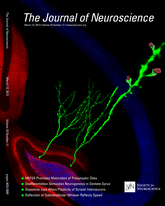Although
In this study, we used rodent models to study behavioral and synaptic correlates related to individual differences in the development of ethanol locomotor sensitization, a form of drug-dependent behavioral plasticity associated with addiction vulnerability.
Male Swiss Webster mice were treated daily with saline or 1.8 g/kg ethanol for 21 d. Locomotor activity tests were performed once a week for 15 min immediately after saline or ethanol injections. After at least 11 d of withdrawal, cohorts of saline- or ethanol-treated mice were used to characterize the relationships between locomotor sensitization, ethanol drinking, and glutamatergic synaptic transmission in the nucleus accumbens.
Ethanol-treated mice that expressed locomotor sensitization to ethanol drank significantly more ethanol than saline-treated subjects and ethanol-treated animals resilient to this form of behavioral plasticity. Moreover, ethanol-sensitized mice also had reduced accumbal NMDA receptor function and expression, as well as deficits in NMDA receptor-dependent long-term
These findings suggest that disruption of accumbal core NMDA receptor-dependent plasticity may represent a synaptic correlate associated with ethanol-induced locomotor sensitization and increased propensity to consume ethanol.
Read Full Abstract
Request Reprint E-Mail: mlosformigoni@unifesp.br
